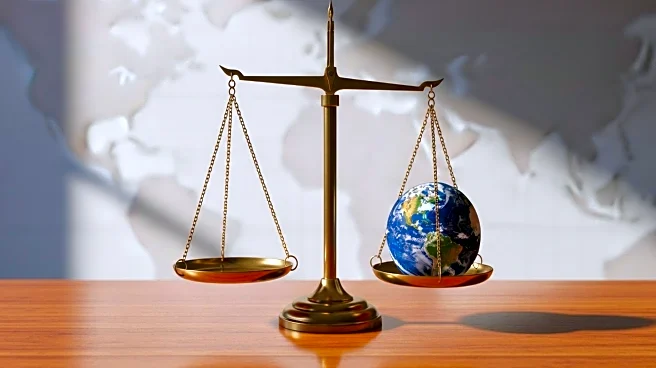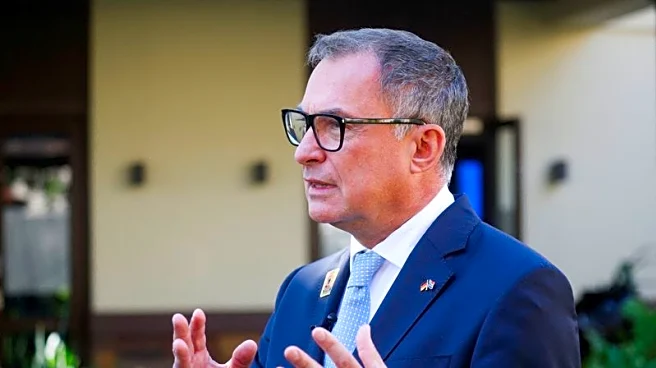What is the story about?
What's Happening?
The head of the United Nations High Commissioner for Refugees (UNHCR), Filippo Grandi, has criticized the deportation practices of the United States under President Trump's administration, suggesting they violate international law. In a speech, Grandi expressed concern over a global backlash against migrants and refugees, highlighting that the U.S. has implemented deportation measures that may not align with international legal standards. Despite these criticisms, Grandi acknowledged the Trump administration's efforts in peace negotiations in conflict zones like Congo. The UNHCR has faced significant funding cuts, leading to a reduction of nearly 5,000 jobs, which Grandi attributes to a decrease in support from traditional donor countries, including the U.S.
Why It's Important?
The critique from the UNHCR underscores tensions between national immigration policies and international legal standards. The U.S. administration's approach to immigration, emphasizing border security and legal migration, contrasts with the UN's advocacy for asylum rights. This situation highlights a broader debate on how countries balance sovereignty with international humanitarian obligations. The funding cuts to the UNHCR could impact global refugee support, affecting millions displaced by conflicts worldwide. The U.S.'s stance may influence other nations' immigration policies, potentially leading to stricter asylum regulations globally.
What's Next?
The U.S. State Department has defended its immigration policies, asserting they align with national laws and public demand for secure borders. As Grandi's term ends, the UNHCR may continue to advocate for adherence to international asylum laws. The ongoing dialogue between the U.S. and international bodies like the UN could shape future immigration policies. Additionally, the UNHCR's financial challenges may prompt calls for increased international support to address the growing refugee crisis.
Beyond the Headlines
The debate over U.S. deportation practices reflects broader ethical and legal questions about the treatment of refugees and migrants. The erosion of respect for international law in developed countries, as noted by Grandi, raises concerns about the future of global humanitarian efforts. The situation also highlights the disparity in refugee support, with poorer countries bearing the brunt of hosting displaced populations. This dynamic may prompt a reevaluation of international responsibilities and the need for equitable burden-sharing.
















